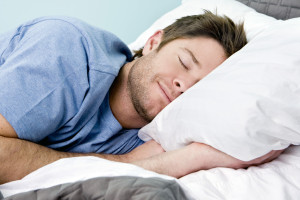 Chronic sleep deprivation negatively affects millions of Americans. Sleep loss is detrimental to our moods, productivity, concentration, and relationships. Since improving sleep is so critical to our functioning, we should try different strategies to help us get more sleep. Consider trying some of these tips BEFORE pursuing prescription medication because medication has side effects including cost, dependency, grogginess, etc. Sleep medication should only be used temporarily and under a physician’s orders. Check out the September 2008 issue of Consumer Reports for a discussion about the problems with sleep medications.
Chronic sleep deprivation negatively affects millions of Americans. Sleep loss is detrimental to our moods, productivity, concentration, and relationships. Since improving sleep is so critical to our functioning, we should try different strategies to help us get more sleep. Consider trying some of these tips BEFORE pursuing prescription medication because medication has side effects including cost, dependency, grogginess, etc. Sleep medication should only be used temporarily and under a physician’s orders. Check out the September 2008 issue of Consumer Reports for a discussion about the problems with sleep medications.
As I grow older, I’m more and more convinced that the first and best course of action is to try the simple, more natural ways of handling problems before going to more extreme measures. For me, insomnia falls into this category. The big caveat here is that if you suspect that there could be a physical problem, such as sleep apnea or hypertension, behind your sleep difficulties, you need to discuss this with your physician. In fact, it’s important to have regular physicals and checkups by your physician as a precautionary measure for a variety of physical problems.
Improving Sleep – Some Useful Strategies
1. Avoid caffeine, alcohol, tobacco products, and exercise several hours before bed. With caffeine, avoid having any at least 8 hours before going to bed. I’d recommend no exercise or alcohol at least 3 hours before bed. For alcohol, it’s particularly important not to go to sleep while inebriated because it disrupts your sleep cycle and REM sleep. Sleeping while intoxicated is not quality sleep.
2. Avoid watching TV, movies, playing video games, and being in front of a computer screen at least one hour before bed. The artificial light fools your brain into staying alert.
3. Use the bed only for sleeping. You want your body and mind to associate the bed with sleep and not a multitude of activities such as reading, watching TV, checking email on the laptop, etc. That means it’s best to remove the TV from your bedroom.
4. Try using a white noise maker in the background. These are inexpensive (around $20) and studies have shown them to be extremely effective.
5. Have a bedtime ritual or develop a routine around bedtime. This gets your brain and body programmed for sleep.
6. Avoid bright lights near bedtime. These signal our brain that we need to wake up/keep alert. So, dim the lights as you approach bedtime and, again, stay away from the computer and TV screen.
7. Don’t get to bed hungry or overly full.
8. Don’t have a clock in view. You’ll be tempted to check it periodically which could up your anxiety about falling asleep.
9. Make sure you turn your cell phone off. This is a particularly tough challenge for teens who often feel compelled to leave their phones on at all times and at their bedside.
10. If you can’t fall asleep after about 20-30 minutes, get up and do something boring (or at least non-stimulating) like reading a book.
11. Have the temperature adjusted to a comfortable level before attempting to sleep.
12. Try some drinking some warm milk or herbal tea as part of your bedtime ritual.
13. If your mind often races about the things that you need to do for the next day, sit down with a pad and paper before bedtime and make a “to do” list. This can help you to reduce your worries that get in the way of nodding off.
14. These tips for sleeping can be helpful for anyone. But, just to emphasize this again, if you have any reason to suspect that there is a medical/physical reason behind your sleep difficulties, consult your physician. It’s good to rule out physical problems on the front end by having physical exams on a regular basis. Also, if you continue to experience difficulties falling asleep and have tried many strategies, including consulting your physician, working with a psychologist could prove helpful.
I hope that some of these tips help, and I wish you pleasant dreams!
